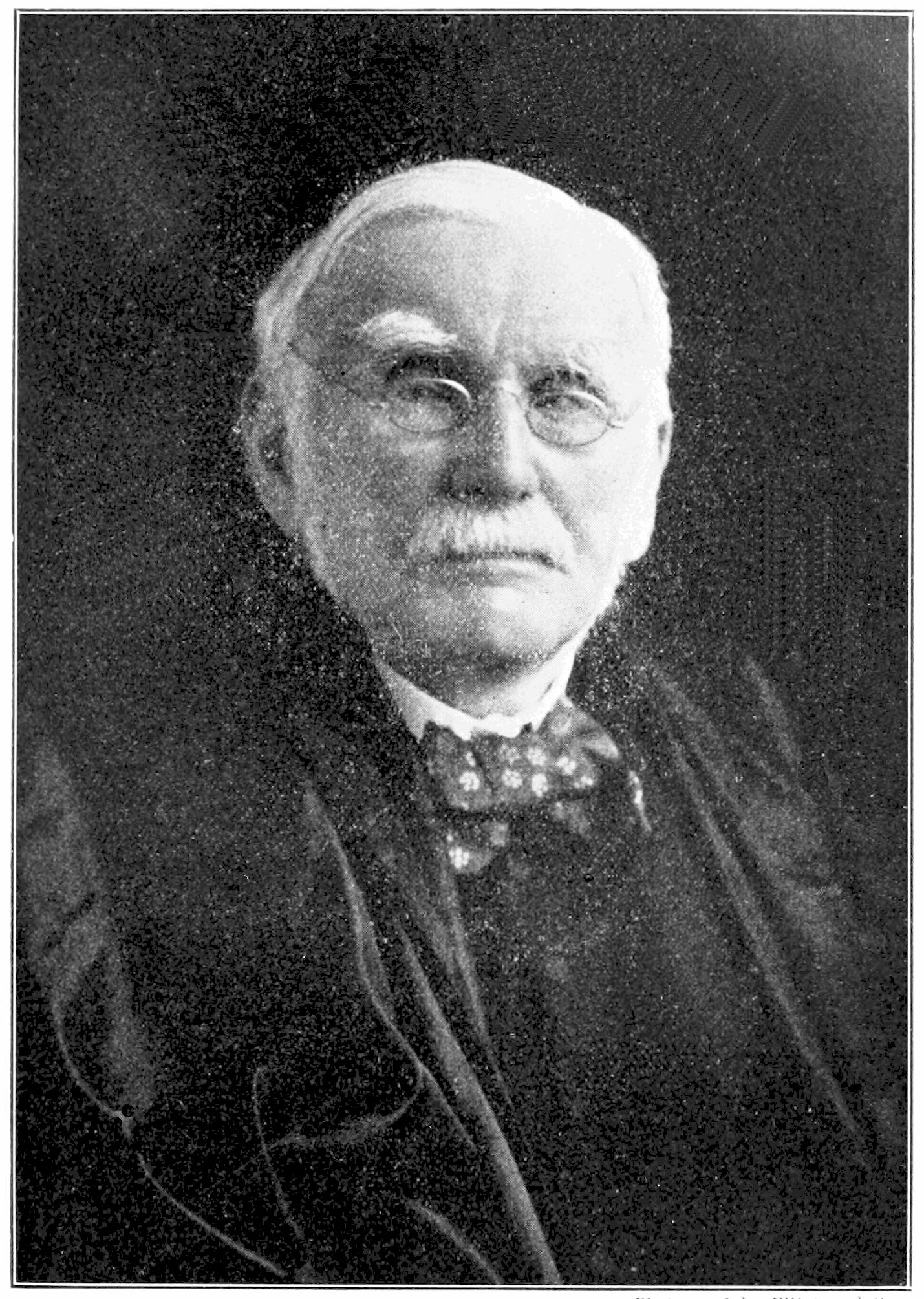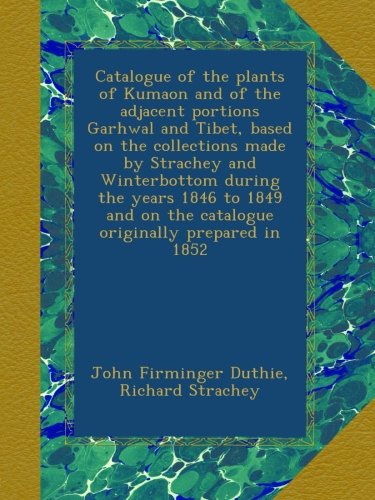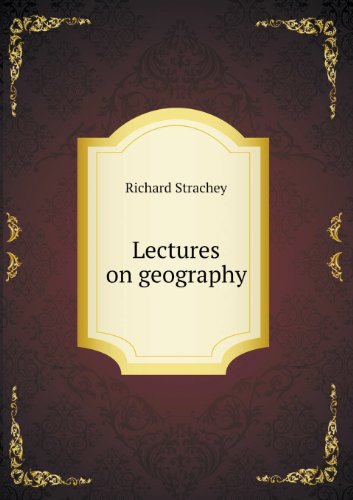Background
He was born on the 24th of July 1817, at Sutton Court, Somersetshire. Richard Strachey was the third son of Edward Strachey and grandson of Sir Henry Strachey, 1st Baronet.



(This book was originally published prior to 1923, and rep...)
This book was originally published prior to 1923, and represents a reproduction of an important historical work, maintaining the same format as the original work. While some publishers have opted to apply OCR (optical character recognition) technology to the process, we believe this leads to sub-optimal results (frequent typographical errors, strange characters and confusing formatting) and does not adequately preserve the historical character of the original artifact. We believe this work is culturally important in its original archival form. While we strive to adequately clean and digitally enhance the original work, there are occasionally instances where imperfections such as blurred or missing pages, poor pictures or errant marks may have been introduced due to either the quality of the original work or the scanning process itself. Despite these occasional imperfections, we have brought it back into print as part of our ongoing global book preservation commitment, providing customers with access to the best possible historical reprints. We appreciate your understanding of these occasional imperfections, and sincerely hope you enjoy seeing the book in a format as close as possible to that intended by the original publisher.
http://www.amazon.com/gp/product/B00AHKHIPS/?tag=2022091-20

(Lectures on geography delivered before the University of ...)
Lectures on geography delivered before the University of Cambridge during the lent term, 1888 (1888). This book, "Lectures on geography", by Richard Strachey, is a replication of a book originally published before 1888. It has been restored by human beings, page by page, so that you may enjoy it in a form as close to the original as possible.
http://www.amazon.com/gp/product/5518659253/?tag=2022091-20
administrator military Soldier Lieutenant General
He was born on the 24th of July 1817, at Sutton Court, Somersetshire. Richard Strachey was the third son of Edward Strachey and grandson of Sir Henry Strachey, 1st Baronet.
He was educated in the Addiscombe Military Seminary.
From Addiscombe Military Seminary he passed into the Bengal Engineers in 1836, and was employed for some years on irrigation works in the North-Western Provinces.
Strachey served in the First Anglo-Sikh War of 1845–46, and was at the battles of Aliwal and Sobraon, was mentioned in dispatches, and received a brevet-majority.
From 1858 to 1865 he was chiefly employed in the public works department, either as acting or permanent secretary to the government of India, and from 1867 to 1871 he filled the post of director-general of irrigation, then specially created.
During this period the entire administration of public works was reorganized to adapt it to the increasing magnitude of the interests with which this department has had to deal since its establishment by Lord Dalhousie in 1854. For this reorganization, under which the accounts were placed on a proper footing and the forest administration greatly developed, Strachey was chiefly responsible. His work in connexion with Indian finance was important. In 1867 he prepared a scheme in considerable detail for decentralizing the financial administration of India, which formed the basis of the policy afterwards carried into effect by his brother Sir John Strachey under Lord Mayo and Lord Lytton.
He left India in 1871, but in 1877 he was sent there to confer with the government on the purchase of the East Indian railway, and was then selected as president of the commission of inquiry into Indian famines. In 1878 he was appointed to act for six months as financial member of the governor-general's council, when he made proposals for meeting the difficulties arising from the depreciation of the rupee, then just beginning to be serious. These proposals did not meet with the support of the secretary of state. From that time he continued to take an active part in the efforts made to bring the currencies of India and England into harmony, until in 1892 he was appointed a member of Lord Herschell's committee, which arrived at conclusions in accordance with the. views put forward by him in 1878.
He attended in 1892 the International Monetary Conference at Brussels as delegate for British India. Strachey was a member of the council of the secretary of state for India from 1875 to 1889, when he resigned his seat in order to accept the post of chairman of the East Indian Railway Company.
Strachey's scientific labours in connexion with the geology, botany and physical geography of the Himalaya were considerable. He devoted much time to meteorological research, was largely instrumental in the formation of the Indian meteorological department, and became chairman of the meteorological council of the Royal Society in 1883.
He died on the 12th of February 1908.
(This book was originally published prior to 1923, and rep...)
(Lectures on geography delivered before the University of ...)
From 1888 to 1890 he was president of the Royal Geographical Society.
His first wife Caroline Bowles died in 1855, within a year of their marriage.
Jane, Lady Strachey (1840–1928), formerly Jane Maria Grant, whom he married on 4 January 1859, was a well-known author and supporter of women's suffrage. She co-led the Mud March of 1907 in London.
Sir Richard and Lady Strachey were the parents of thirteen children of whom ten survived to adulthood, among them the authors Lytton Strachey, James Strachey, Oliver Strachey, Dorothy Bussy née Strachey, the suffragist Pippa Strachey, and the college head Pernel Strachey.
She wrote two books for children.
She was an English novelist and translator, close to the Bloomsbury Group.
She was a British suffragist.
She was an English scholar of French and a head of Newnham College.
A founding member of the Bloomsbury Group and author of Eminent Victorians, he is best known for establishing a new form of biography in which psychological insight and sympathy are combined with irreverence and wit.
He was a British psychoanalyst, and, with his wife Alix, a translator of Sigmund Freud into English.
He a British civil servant in the Foreign Office, was a cryptographer from World War I to World War II.
